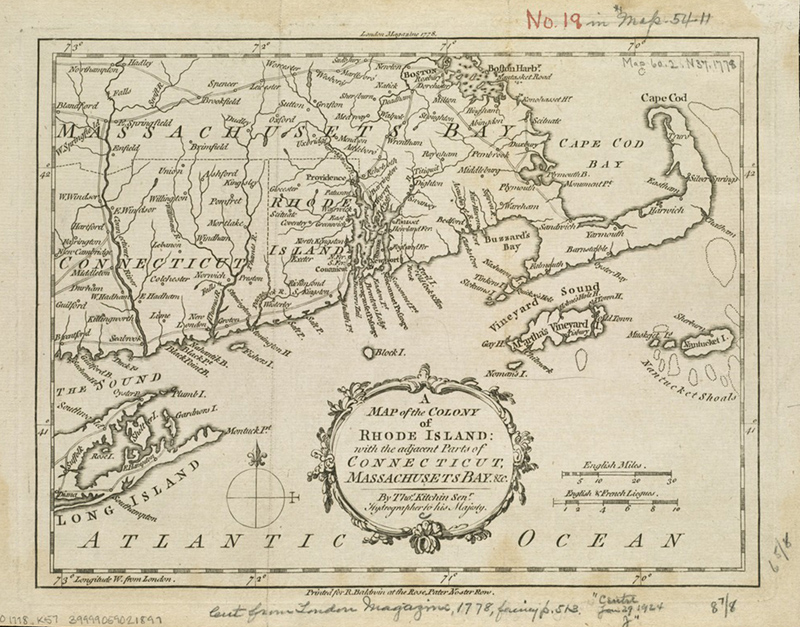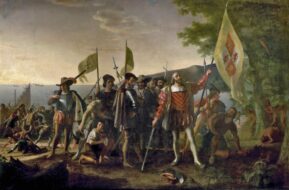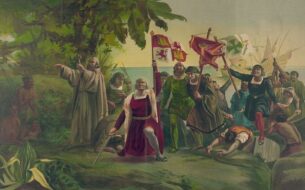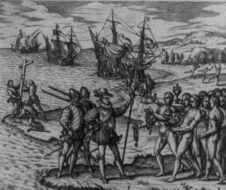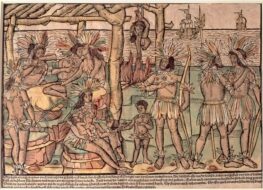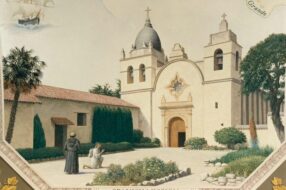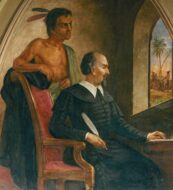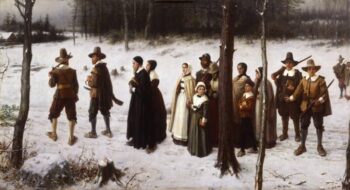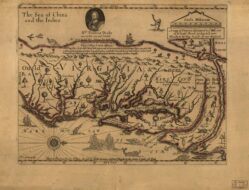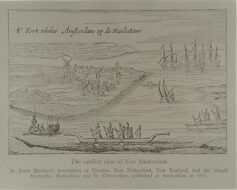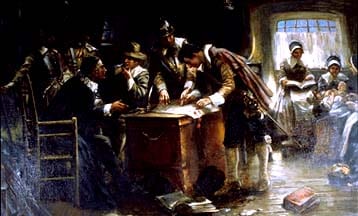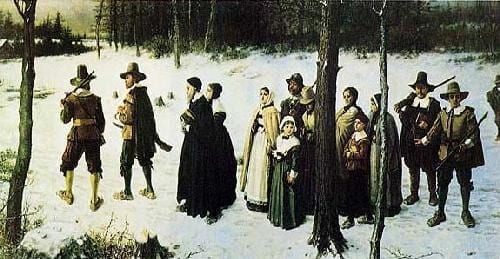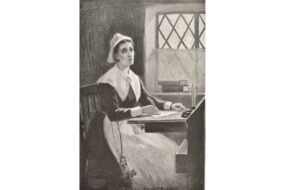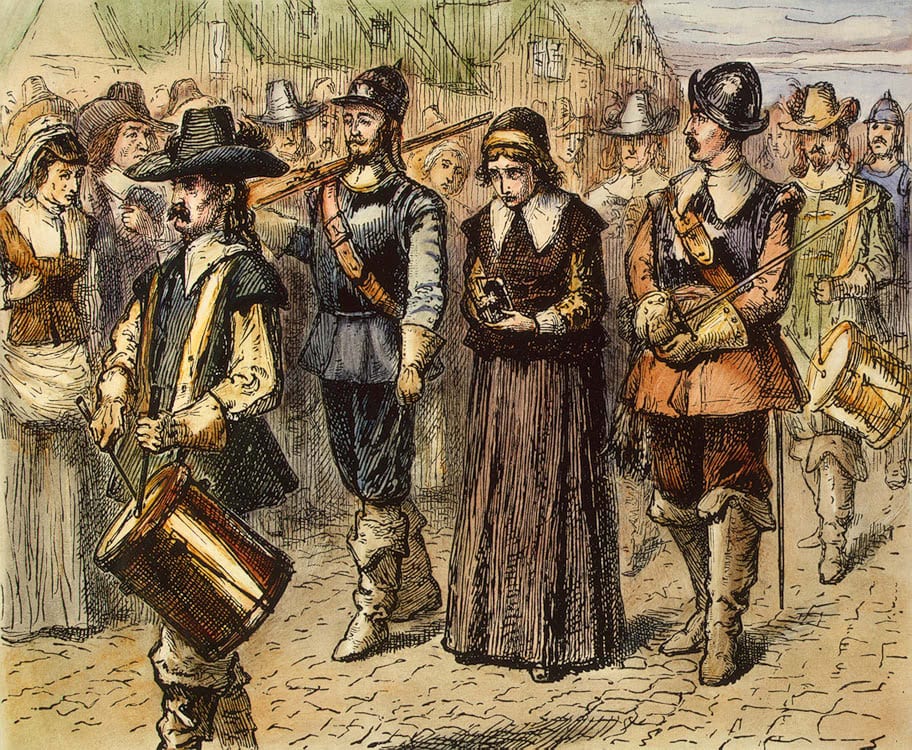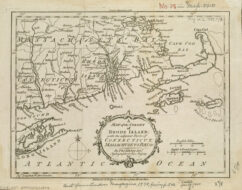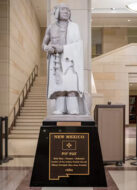Introduction
The first words the Pilgrims heard spoken by an Indian after their arrival in what became Massachusetts were, “Hello, Englishmen.” The greeting was offered by Samoset, an Abenaki who had learned some English from sailors who came to fish off the New England shore before the arrival of colonists. After saying hello, he reportedly asked for beer. Later, he brought back Tisquantum (commonly known to the English as Squanto). Tisquantum was fluent in English because he had previously been captured by English sailors and taken to England as a slave. With help from some sympathetic monks, he escaped and returned home, only to find his people wiped out by disease and Pilgrims living at the site of his village.
Though relations between the Pilgrims and the Wampanoag Indians, in whose territory they had settled, were initially wary, mutual need drove them together. The Pilgrims and Wampanoag sachem (chief) Massasoit forged a partnership that persisted through Massasoit’s lifetime, but deteriorated after his death in 1661. The Indians taught the newcomers to survive by planting corn and catching and eating lobsters. The English provided a much needed, if largely symbolic, ally to the Wampanoag against neighboring tribes.
War broke out between the English and the powerful Pequot in 1636 when the English attempted to break up the Pequot monopoly on the trade in wampum, shell beads considered sacred by the Indians. While there were provocations on both sides, the English, who increasingly no longer needed the Natives, bore the larger share of the blame.
As tempers flared, John Easton, deputy governor of the colony of Rhode Island and Providence Plantations, met with Metacomet (known as Philip to the English), Massasoit’s son and successor, in an effort to avoid war. Easton published his account of the events in a small book, A Relation of the Indian War. In this selection Easton recounted Metacomet’s grievances against the colonists that led to war.
—Jace Weaver
. . . For four years’ time reports and jealousies of war had been very frequent yet we did not think that now a war was breaking forth, but about a week before it did, we had cause to think it would. Then to endeavor to prevent it, we sent a man to Philip [Metacomet] that if he would come to the ferry we would come over to speak with him. . . . He called his council and agreed to come to us. . . himself unarmed and about forty of his men armed. Then five of us went over. Three were magistrates.1 We sat very friendly together. We told him our business was to endeavor that they might not receive or do wrong. They said that was well; they had done no wrong, the English wronged them. We said we knew the English said the Indians wronged them and the Indians said the English wronged them, but our desire was the quarrel might rightly be decided in the best way, and not as dogs decided their quarrels. The Indians owned that fighting was the worst way then they propounded how right might take place. We said by arbitration. They said all English agreed against them and so by arbitration they had had much wrong, many miles square of land so taken from them, for English would have English arbitrators; and once they were persuaded to give in their arms, that thereby jealousy might be removed, and the English having their arms would not deliver them as they had promised, until they consented to pay 100 pounds, and now they had not so much land or money; that they were as good be killed as leave all their livelihood.
We said they might choose an Indian king, and the English might choose the governor of New York that neither had cause to say either were parties in the difference. They said they had not heard of that way and said we honestly spoke so we were persuaded if that way had been tendered they would have accepted. We did endeavor not to hear their complaints, said it was not convenient for us now to consider of, but to endeavor to prevent war, said to them when in war against English blood was spilled that engaged all Englishmen for we were to be all under one king. We knew what their complaints would be, and in our colony had removed some of them in sending for Indian rulers in what the crime concerned Indians lives, which they very lovingly accepted, and agreed with us to their execution and said so they were able to satisfy their subjects when they knew an Indian suffered duly, but said in what was only between their Indians and not in townships that we had purchased, they would not have us prosecute and that they had a great fear to have any of their Indians should be called or forced to be Christian Indians. They said that such were in everything more mischievous, only dissemblers, and then the English made them not subject to their kings, and by their lying to wrong their kings. We knew it to be true, and we promising them that however in government to Indians all should be alike and that we knew it was our king’s will it should be so, that although we were weaker than other colonies, they having submitted to our king to protect them, others dared not otherwise to molest them. So they expressed they took that to be well, that we had little cause to doubt but that to us under the king they would have yielded to our determinations in what any should have complained to us against them, but Philip charged it to be dishonesty in us to put off the hearing the complaints; therefore we consented to hear them. They said they had been the first in doing good to the English, and the English the first in doing wrong, said when the English first came their king’s father2 was as a great man and the English as a little child, he constrained other Indians from wronging the English and gave them corn and showed them how to plant and was free to do them any good and had let them have a 100 times more land, than now the king had for his own people, but their king’s brother when he was king came miserably to die by being forced to court as they judged poisoned, and another grievance was if 20 of their honest Indians testified that a Englishman had done them wrong, it was as nothing, and if but one of their worst Indians testified against any Indian or their king when it pleased the English that was sufficient. Another grievance was when their kings sold land the English would say it was more than they agreed to and a writing must be proof against all them, and some of their kings had done wrong to sell so much. He left his people none and some being given to drunkenness the English made them drunk and then cheated them in bargains, but now their kings were forewarned not for to part with land for nothing in comparison to the value thereof. Now whom the English had owned for king or queen they [the English] would disinherit, and make another king that would give or sell them their land, that now they had no hopes left to keep any land. Another grievance the English cattle and horses still increased that when they removed 30 miles from where English had anything to do, they could not keep their corn from being spoiled, they never being used to fence, and thought when the English bought land of them that they would have kept their cattle upon their own land. Another grievance the English were so eager to sell the Indians liquors that most of the Indians spent all in drunkenness and then ravened upon3 the sober Indians and they did believe often did hurt the English cattle, and their kings could not prevent it. We knew before these were their grand complaints, but then we only endeavored to persuade that all complaints might be righted without war, but could have no other answer but that they had not heard of that way for the Governor of York and an Indian king to have the hearing of it. We had cause to think if that had been tendered it would have been accepted. We endeavored that however they should lay down their arms for the English were too strong for them. They said then the English should do to them as they did when they were too strong for the English. So we departed without any discourteousness, and suddenly had letter from Plymouth Governor they intended in arms to conform4 Philip, but no information what that was they required or what terms he refused to have their quarrel decided, and in weeks’ time after we had been with the Indians the war thus begun.


